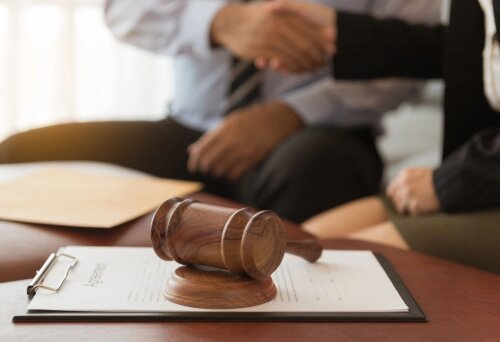Best Criminal Litigation Lawyers in Warren
Share your needs with us, get contacted by law firms.
Free. Takes 2 min.
List of the best lawyers in Warren, United States
1. About Criminal Litigation Law in Warren, United States
In Warren, criminal litigation is primarily governed by Ohio state law and local court rules. The process covers arrest, arraignment, pretrial motions, trial, and potential appeal. The Warren Municipal Court handles most misdemeanor offenses and traffic violations within the city, while felony cases advance to the Trumbull County Court of Common Pleas. Defense counsel and the prosecutor coordinate through discovery, plea negotiations, and sentencing considerations.
Criminal cases require the government to prove guilt beyond a reasonable doubt. Defendants have rights to counsel, to remain silent, and to a fair trial, all of which apply in Warren’s courts. The standard of procedure is shaped by both the Ohio Revised Code and the Ohio Rules of Criminal Procedure. Local practice in Warren mirrors statewide rules but can vary by court and case type.
Knowledgeable legal counsel in Warren can explain how bonds, preliminary hearings, and arraignments work in practice. They can also help with evaluating plea offers and preparing for trial. Understanding the jurisdictional path-whether a case remains in Warren Municipal Court or moves to the Trumbull County Court of Common Pleas-is essential for strategic planning.
2. Why You May Need a Lawyer
- Your arrest is for a DUI or other driving offense in Warren. A lawyer helps evaluate stop legality, breath or blood test results, and potential suppression issues. They can also negotiate a plea or seek pretrial diversion if eligible.
- You face a felony charge such as burglary or drug distribution. Felony cases start in the Trumbull County Court of Common Pleas and require careful handling of evidence, grand jury processes, and potential pretrial motions. An attorney can instruct you on possible plea options and sentencing consequences.
- You are charged with domestic violence or a related protection order violation. These cases involve complex evidence and risk of custody or housing consequences. A lawyer can protect your rights, challenge improper notices, and pursue appropriate pretrial relief.
- You are accused of shoplifting, fraud, or another property crime. Defense counsel can scrutinize surveillance footage, inventory records, and eyewitness accounts. A lawyer can help with motions to suppress or fair plea bargains tailored to Warren jurisdictions.
- You received a warrant or face a probation or parole violation. A lawyer is essential to challenge warrants, attributes of probable cause, and the reliability of new charges. They can also coordinate with the probation department on sanctions and remediation.
- You need to understand bail options and pretrial release conditions. An attorney can negotiate reasonable bond terms and ensure your rights to pretrial freedom are protected. They can also explain potential tolling factors that affect timelines in Warren cases.
In each scenario, a qualified criminal defense attorney provides advice tailored to Warren’s courts, helps with evidence preservation, and guides you through the pretrial and trial timeline. The right lawyer can also connect you with local resources and explain the likely outcomes based on prior Warren cases. Contacting a lawyer early improves your position in plea negotiations and pretrial management.
3. Local Laws Overview
The core framework for Warren criminal litigation rests on Ohio law and court rules. The Ohio Rules of Criminal Procedure govern how cases proceed from arraignment to trial. These rules apply in Warren Municipal Court as well as the Trumbull County Court of Common Pleas for felony matters. Key topics include preliminary hearings, discovery, motions, and sentencing procedures.
In addition, the Ohio Revised Code provides the statutory structure for offenses, defenses, and penalties. For example, statutes under Title 29 cover criminal offenses and general definitions used across Warren courts. Practitioners must consult the current ORC text to understand elements of offenses and applicable punishments. Local practice in Warren aligns with statewide statutory frameworks but may differ by court procedural details.
Ohio's speedy trial provisions regulate when a defendant must be brought to trial, subject to tolling for certain delays. Source: Ohio Revised Code, ORC 2945.71 and related sections
Recent changes and ongoing updates to the Rules of Criminal Procedure and to statutory provisions are published by the Supreme Court of Ohio and codified on official sites. Defendants in Warren should review the current versions of ORCrP and ORC to understand the latest timelines, motions, and rights. See the official sources for the most up-to-date language and effective dates.
Practical takeaway for Warren residents: always verify the current text of the applicable rule or statute to understand how it affects your arraignment, discovery requests, and potential pretrial delays. A Warren-based attorney can interpret these provisions in the context of your case and local courtroom practices. For official text, consult the Ohio Revised Code and the Ohio Rules of Criminal Procedure.
4. Frequently Asked Questions
What is criminal litigation in Warren, Ohio?
Criminal litigation is the process of prosecuting or defending against criminal charges in Warren courts. It includes investigation, arraignment, discovery, motions, trial, and appeals. It is handled under Ohio state law and local court rules.
How do I know if I need a Warren criminal defense attorney?
You should hire counsel if you face arrest, a charge, or a protective order in Warren. An attorney can evaluate evidence, advise on pleas, and protect your rights through pretrial and trial.
What is the difference between a municipal court and a common pleas court in Warren?
Municipal Court handles misdemeanors and traffic offenses within city limits. Common Pleas handles felonies and more serious cases at the county level in Warren-related proceedings.
What should I ask a potential Warren attorney during a consultation?
Ask about trial experience, case outcomes in Warren, discovery handling, plea negotiation history, and expected timelines. Also discuss fees and communication style.
How much does hiring a criminal defense attorney in Warren typically cost?
Costs vary by case type, complexity, and attorney experience. Some lawyers charge a flat fee for certain misdemeanors, while others bill hourly for more complex felonies or appeals.
Do I qualify for any pretrial release programs in Warren?
Pretrial release depends on the offense and risk assessment. An attorney can evaluate eligibility and help with bond requests and conditions.
Is a preliminary hearing required in Warren felony cases?
Most Warren felonies begin with a preliminary hearing or an indictment in the Court of Common Pleas. A lawyer can explain which path applies to your case.
What is discovery and why is it important in Warren cases?
Discovery is the exchange of evidence between the defense and prosecution. Access to police reports, witness statements, and lab results helps prepare your defense.
How long does a typical Warren criminal case take?
Timeline varies by case type and court backlog. Misdemeanor cases can resolve in weeks to months, while felonies may take several months to years, particularly if appeals or complex motions occur.
What is a plea agreement and when should I consider one in Warren?
A plea agreement resolves a case without a trial, often with a negotiated sentence. Consider it when it aligns with your best interests and risk tolerance, after counsel review.
What happens if I miss a court date in Warren?
Missing a court date can bring a warrant or further sanctions. An attorney can help you address the issue promptly and seek reinstatement or a new appearance date.
Can I switch lawyers if I am not satisfied with my current representation?
Yes. You may request new counsel, subject to court approval and any applicable timing constraints. An attorney can help manage the transition and protect your rights.
5. Additional Resources
- Ohio Revised Code - Official state statute repository for offenses and procedures. https://codes.ohio.gov/
- Ohio Rules of Criminal Procedure - Governs pretrial, trial, and related procedures in Ohio courts. https://www.supremecourt.ohio.gov/RateCriminalProcedure/
- Ohio Attorney General - Information on criminal cases, resources for victims, and public safety guidance. https://www.ohioattorneygeneral.gov/
Additional government and official resources may include the Supreme Court’s rules pages and state law codices. Always verify the current text on these sites to ensure you have the latest rules and dates. These sources provide authoritative reference points for Warren residents navigating criminal litigation.
6. Next Steps
- Define your case type and goals. Decide whether you anticipate a misdemeanor or felony matter and whether you seek a plea option or trial. Do this within 1-2 days after an arrest or notice.
- Gather key documents. Collect police reports, charging documents, and any available lab results or surveillance footage. Complete this within 3-5 days to streamline consultations.
- Identify 3-5 Warren area attorneys with relevant experience. Look for prior outcomes in Warren Municipal Court and Trumbull County Court of Common Pleas. Schedule initial consultations within 1-2 weeks.
- Prepare questions for consultations. Focus on experience, case strategy, fee structure, and communication expectations. Bring your discovery items to the meetings.
- Attend consultations and compare proposals. Assess track record, courtroom style, and responsiveness. Take notes and request written fee estimates within 2-3 weeks.
- Choose and hire a lawyer. Decide based on fit, cost, and confidence in the plan. Complete the engagement within 2-4 weeks from your first consultation.
- Develop a pretrial plan with your attorney. Set timelines for motions, discovery requests, and potential plea negotiations. Confirm a return-to-court schedule with the clerk of courts.
Lawzana helps you find the best lawyers and law firms in Warren through a curated and pre-screened list of qualified legal professionals. Our platform offers rankings and detailed profiles of attorneys and law firms, allowing you to compare based on practice areas, including Criminal Litigation, experience, and client feedback.
Each profile includes a description of the firm's areas of practice, client reviews, team members and partners, year of establishment, spoken languages, office locations, contact information, social media presence, and any published articles or resources. Most firms on our platform speak English and are experienced in both local and international legal matters.
Get a quote from top-rated law firms in Warren, United States — quickly, securely, and without unnecessary hassle.
Disclaimer:
The information provided on this page is for general informational purposes only and does not constitute legal advice. While we strive to ensure the accuracy and relevance of the content, legal information may change over time, and interpretations of the law can vary. You should always consult with a qualified legal professional for advice specific to your situation.
We disclaim all liability for actions taken or not taken based on the content of this page. If you believe any information is incorrect or outdated, please contact us, and we will review and update it where appropriate.









